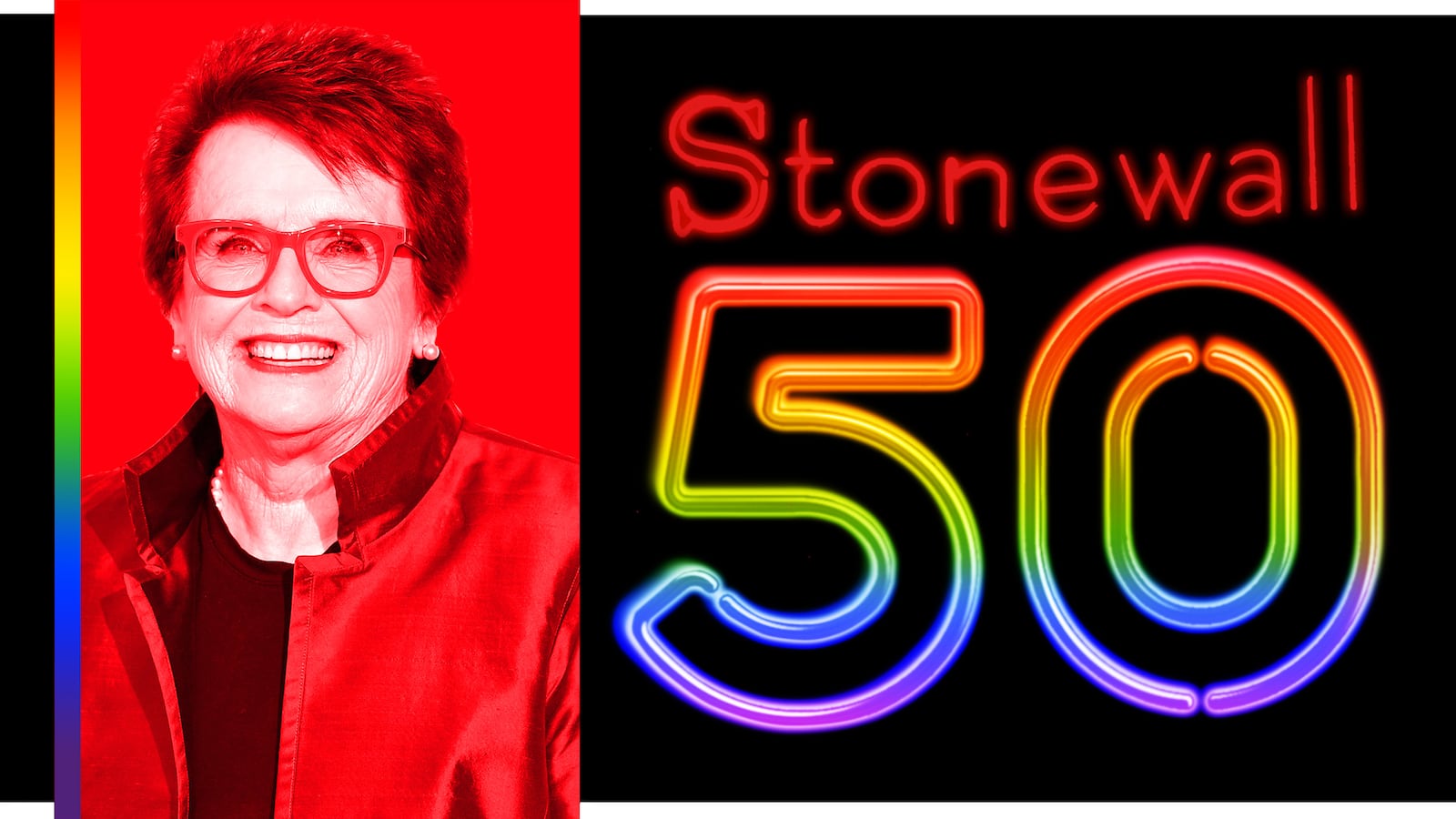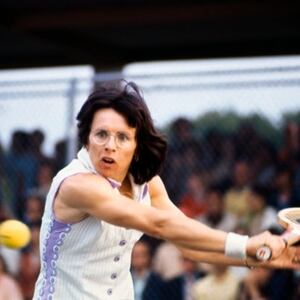In this special series, LGBT celebrities and public figures talk to Tim Teeman about the Stonewall Riots and their legacy.
Tennis great Billie Jean King is the founder of the Billie Jean King Leadership Initiative. She won 39 Grand Slam titles, including a record 20 Wimbledon titles. She was outed in 1981, and is a passionate advocate for LGBT equality.
When/how did you first hear about the Stonewall Riots, and what did you make of them?
I was not as closely in tune with the community, or myself, in 1969 as I am today. I was in England playing at Wimbledon and being geographically removed from the news was a factor. While there was some limited media coverage, in those days the news traveled faster by word of mouth in an underground manner. Eventually the Stonewall uprising evolved into the origin of the modern gay movement.
What is the riots’ significance for you?
I remember feeling just like the famous line in the movie, Network—“I’m mad as hell and I’m not going to take it anymore!” Standing up for our community and advocating for ourselves was powerful then, and is powerful now. The Stonewall Riots gave so many the courage to finally be our authentic selves.
How far have LGBT people come since 1969?
When you read history, you think things move very fast. But when you live it, things move very slow. The LGBT community is one of the best examples of a successful and sustained grassroots effort. The difference between the ’60s and ’70s and today is unbelievable. We are now part of history, instead of being excluded. We have more respect. We have more acceptance. We have a future that has promise, because it is simply too stressful to have to live our lives being hyper-vigilant.
What would you like to see, LGBT-wise, in the next 50 years?
One of the challenges we have is not to go backwards. I want everyone—regardless of race, sexuality, gender, ability or gender identity—to have the same rights. It’s about being equal under the law and in life. It’s called EQUALITY and we want it NOW.






